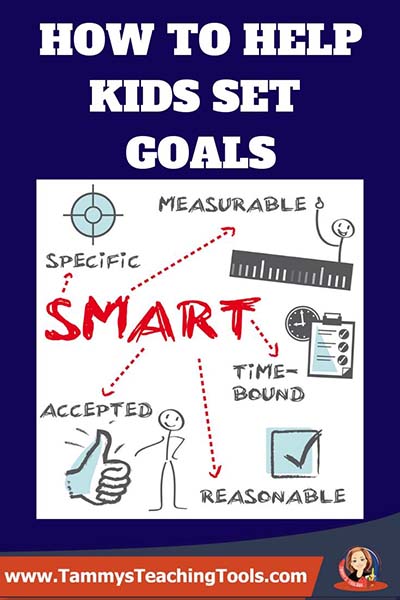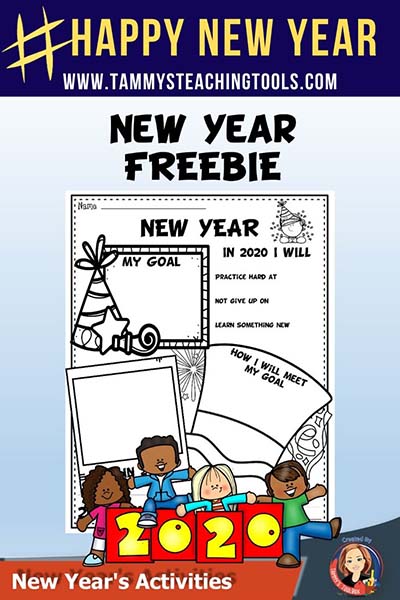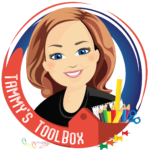As a new year begins, setting goals is on everyone’s to-do list. Let’s talk about how you can help kids start the year on the right foot. Goals provide vision and motivation – when you know what you want and how to accomplish it, you have a greater chance of success. Setting effective goals helps you stay organized and motivates you to focus on acquiring knowledge and developing new skills.
Goal setting is crucial for your child’s personal growth and success. Every aspect of their lives will require the goal-setting strategies, from how to complete homework to which school and profession they will choose, and how they will manage relationships or handle life transitions. It’s important that they learn how to set goals that they can achieve.
Teach Your Child to Set SMART Goals
According to Paul J. Meyer, SMART goals are:
- Specific
- Measurable
- Actionable
- Realistic and
- Time-bound
Specific. This means teaching your child to precisely outline what they want to achieve and why the specific goal is important to them.
Measurable goals mean that your child can identify what it is they will get or how they will feel when they reach their goal.

Actionable. When setting an actionable goal, your child is asking himself how can he accomplish the specific goal and sets an action plan that will help him reach the goal.
Realistic. Teach your child to set goals that are both realistic and challenging. Unrealistic goals create frustration and stress and can damage your child’s self-esteem. Make sure your child’s goals are attainable and beneficial in both the end result and the process of reaching it.
Time-bound. Help your kids set their goals within a reasonable timeframe. Teach them how to set deadlines and use management log to plan their activities and organize time. This will help them learn to set priorities, identify productivity patterns, and it will boost their confidence.
 When you teach your children to set SMART goals, you are helping them bring their goals closer to reality. The SMART checklist helps your child evaluate their goals and clarify the actions that will help achieve them.
When you teach your children to set SMART goals, you are helping them bring their goals closer to reality. The SMART checklist helps your child evaluate their goals and clarify the actions that will help achieve them.
Promote Executive Function Skills
Executive function involves a set of cognitive skills that help us perform in our day-to-day life. These skills include self-control, working memory, and cognitive flexibility (flexible thinking).
Executive function is responsible for the child’s ability to pay attention, plan and organize, start tasks and set goals, understand different viewpoints, regulate emotions.
Children who have difficulties with executive function usually have trouble to manage their emotions, focus, follow directions, set goals, plan, and prioritize, and organize. When kids struggle with executive function, it impacts their relationships and the way they perform at home and in school.
Executive functioning skills start developing in early childhood and into the teen years and early adulthood. Studies show that children with ADHD struggle with executive function. The executive skills in kids with ADHD are delayed because executive functions in these children mature more slowly than in their peers.
The child’s school success depends on their executive function. Strong executive functions skills such as memory, focus, cognitive flexibility, end emotional control help your child memorize facts, complete tasks, remember homework and solve complex math problems. Also, solid executive functioning helps the child tolerate frustrations, manage conflicts, and maintain positive relationships, among other things.
 Tip: Help kids use a planner and reminder notes for daily tasks. Teach them how to break apart goals into manageable pieces with deadlines. Have strategies in place for obstacles that may get in the way of reaching a goal.
Tip: Help kids use a planner and reminder notes for daily tasks. Teach them how to break apart goals into manageable pieces with deadlines. Have strategies in place for obstacles that may get in the way of reaching a goal.
Grab this freebie New Years Goal Poster. Also, check out the complete New Years Goals Writing Activity Pack at Tammy’s Toolbox to help teach and practice setting Smart Goals.
Teaching your children how to set effective goals will benefit them throughout childhood and will prove to be a valuable skill when they enter adulthood.
Happy New Year




